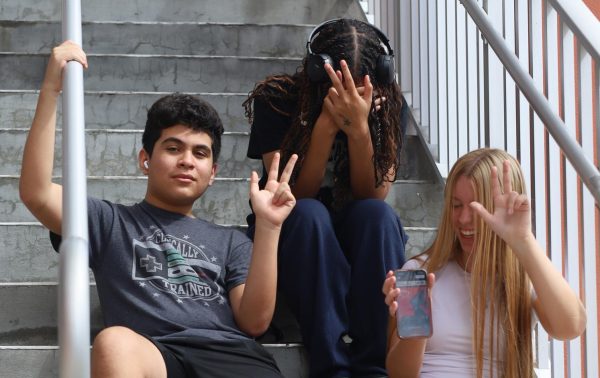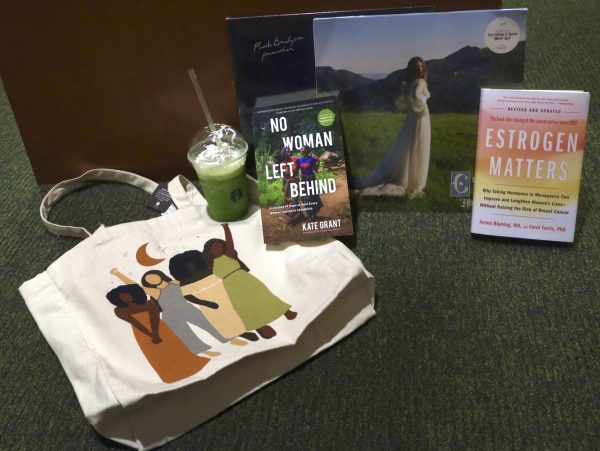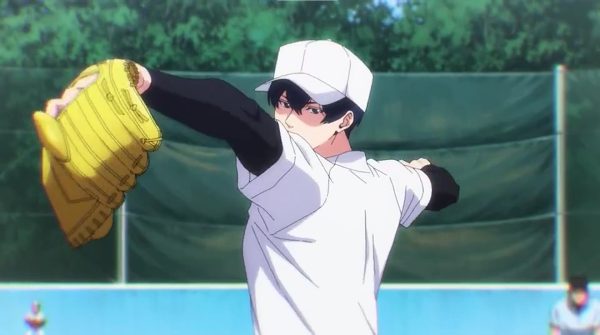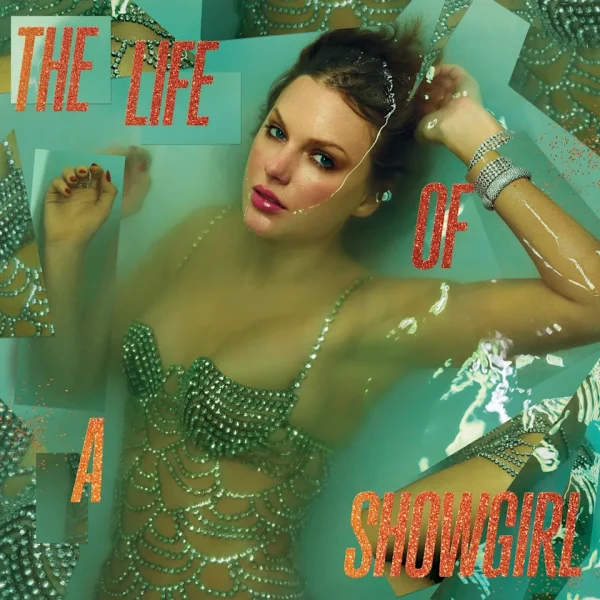The Comic Critic: Not just punching and kicking
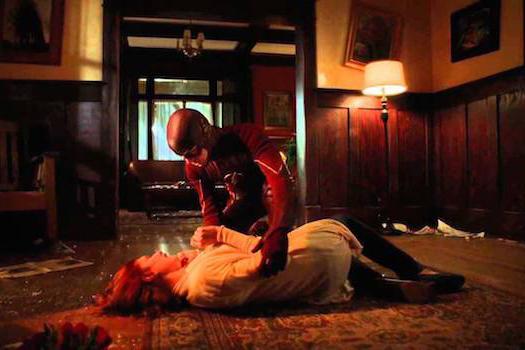
photo by ap2hyc.com
Barry Allen (Grant Gustin) reassures his dying mother, Nora (Michelle Harrison), that he turned out alright in the season one finale of The Flash, “Fast Enough.”
When one walks into the theater to see the latest superhero movie or sits down on the couch to watch an episode of a superhero television series, they never expect something that will delve into real world issues or philosophical topics that leave them asking questions. However, more often than not, that’s what happens, and it makes them love it more.
I can’t start talking about deep superhero movies without acknowledging the X-Men. Released in 2000, the first X-Men changed everything about the superhero movie. While the first installment wasn’t a high point, the franchise garnered praise with its focus on discrimination and how different people deal with it. Charles Xavier, or Professor X, (Sir Patrick Stewart and James McAvoy) and Erik Lehnsherr, more popularly known as Magneto, (Sir Ian McKellen and Micheal Fassbender) share the same end goal, a better world for mutant-kind, but the different ways they go about it, and the division it creates within the community, hinder it from becoming reality, echoing many issues our society faces today. Whether it’s race relations, gender rights, or politics, the X-Men tackled topics that make it a consistently modern franchise.
Losing one’s parents has never been rare in the superhero world. Peter Parker has seen his Uncle Ben die three times. Thomas and Martha Wayne have been shot in an alley three times. Superman’s Kryptonian parents have died twice. While these events were done effectively, they never showed the psychological impact on the hero. The Flash, took a longer, more human, approach to loss. Over the course of the first two seasons, we have seen Barry Allen (Grant Gustin), reflect on how his mother’s death impacted him even decades later. The season two episode “The Runaway Dinosaur,” finally put this plotline to rest in a beautiful way, with Barry confronting his mother’s death head-on. While the loss did hurt, the only thing he can do is to honor and remember her. This episode gave a heartwarming and intelligent message about loss and coping, and it is one of the single best television episodes for that reason.
Now, one of the best films I’ve ever seen is Captain America: Civil War, and not just because of that airport fight scene. While the story was ultimately about the friendship and loyalty between the three main characters, Tony Stark (Robert Downey Jr.), Steve Rogers (Chris Evans) and Bucky Barnes (Sebastian Stan), it is told on a backdrop of a debate between freedom and security, a debate which causes The Avengers to split into Team Captain America and Team Iron Man. Both sides had compelling points and I flipped between them multiple times. It shows that, just like the characters, we face a difficult decision when it comes to choosing a side, and our choice might be for reasons others may not understand. A fact that Sharon Carter (Emily VanCamp), in the words of her Aunt Peggy Carter, highlights as she says, “Even if everyone is telling you that something wrong is something right. Even if the whole world is telling you to move, it is your duty to plant yourself like a tree, look them in the eye, and say, ‘No, you move’.” The fact that the Russo brothers managed to incorporate a theme such as this in a film that was already packed with plot, characters and themes demonstrates the importance of delving beyond epic fight scenes.
The world of film and television is diverse and massive, and superheroes only make up a small niche. While they might not rake in academy awards, superhero films and television shows have the same ability to be deep and profound as any other production. You just have to know where to look.
Your donation will support the student journalists of Hagerty High School. We are an ad-free publication, and your contribution helps us publish six issues of the BluePrint and cover our annual website hosting costs. Thank you so much!

